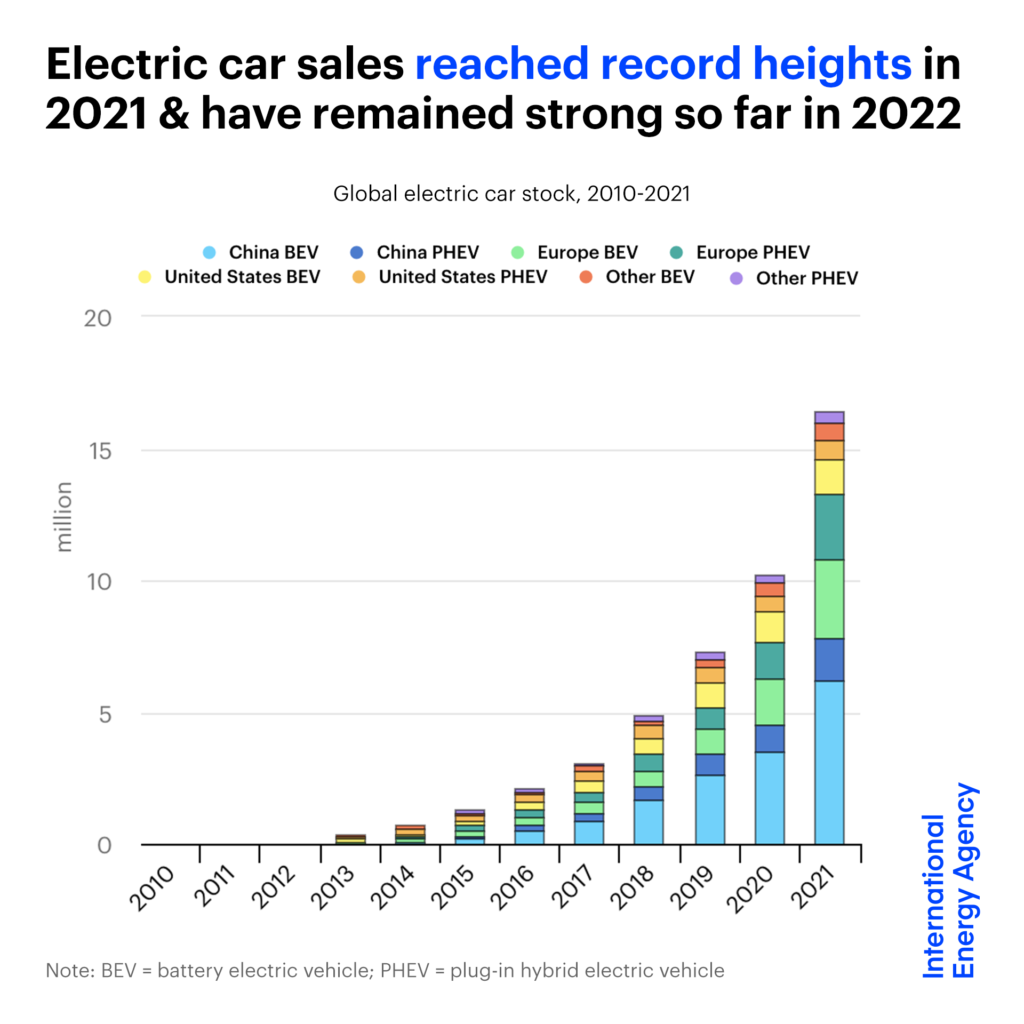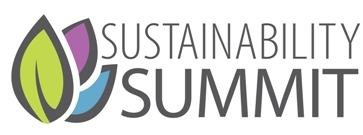- Electric vehicles sales continue to break records
- Automakers zero emissions vehicle announcements are more ambitious than government targets
- Electric vehicles are set to play a key role for road transport to reduce emissions in line with countries’ climate goals
The annual International Energy Agency Global Electric Vehicle Outlook report for 2022 indicates sales of 6.6 million electric cars last year – a new record, rising to nearly 10% of global car sales and double that of 2020. There are now more than 16.5 million electric cars on the road, tripling from 2018. China is the global EV sales leader, with Europe and the United States making up the top three markets. More electric cars were sold in China last year than globally in 2020, while in Europe electric car sales continued their year-on-year sales increase, by more than 85%. Two and three-wheelers have high EV market share, especially in Asia, where China again dominates, registering 9.5 million new electric two- and three-wheelers out of the 10 million registrations. Vietnam and India are the other largest markets for these vehicles.
“There are five recommendations to government outlined in the recent Global EV Outlook 2022 report from the IEA,” says Hiten Parmar, Director of the uYilo eMobility Programme. “Firstly, to maintain and adapt support for electric vehicles, to kickstart the heavy-duty EV market, to promote the adoption of EVs in emerging and developing economies, expand EV infrastructure and smart-grids and, finally, to ensure secure, resilient and sustainable EV supply chains.”
According to the IEA’s report, there has been nearly 40% expansion in the number of public chargers last year, reaching 1.8 million, meaning there is now about 10 EVs per public charge point. South Africa is the market leader for Africa, having installed over 300 public chargers to date through various service providers, with the latest expansion projects including ultra-fast (150 kW) chargers.The model range of EVs globally has shown a five-fold expansion since 2015, now numbering 450. This trend is also visible in heavy-duty vehicles which is showing an accompanying increase in sales in the United States and Europe, driven by the increase in available models, and economic and policy support. In emerging economies, a lack of model availability and high prices means EV adoption is still low. “In South Africa, the electric vehicles currently marketed are exclusively from premium brands,” says Parmar. “Audi, BMW, Jaguar, Mercedes-Benz, Porsche and Volvo all have full electric models available, while the cheapest is from MINI. We still require a wider segment of models to drive further growth in the local market. This can only be realized within the mandate of the Department of Trade, Industry and Competition under the import duty framework, and local production incentives for manufacturing.” The effect electric vehicles will have on the road transport sector, in reducing emissions and contributing to countries achieving their net-zero goals by 2050, will require EV market share to grow by 60% globally. This will require that all elements of the electric vehicle supply chain be significantly expanded, especially the battery supply chain, however more supply investment is needed to meet demand. “Few areas of the new global energy economy are as dynamic as electric vehicles. The success of the sector in setting new sales records is extremely encouraging, but there is no room for complacency,” said IEA Executive Director Fatih Birol. Currently the zero emissions announcements by automotive manufacturers are more ambitious than government targets, but they require policy support in order to be effectively materialised. uYilo eMobility Programme has been an annual contributor to the IEA Global EV publications. You can access the report online on the IEA website – https://www.iea.org/reports/global-ev-outlook-2022.
FOR MORE INFORMATION:Hiten ParmarDirector: uYilo eMobility Programme+27 10 005 5346info@uYilo.org.za uYilo Electric Mobility ProgrammeThe national uYilo Electric Mobility Programme was established in 2013 as a multi-stakeholder, collaborative programme focused on enabling, facilitating and mobilising electric mobility in South Africa. uYilo is an initiative of the Technology Innovation Agency, a public entity of the Department of Science and Innovation. uYilo’s corporate satellite offices are located in Johannesburg and facilities headquartered in Gqeberha (formerly Port Elizabeth).

